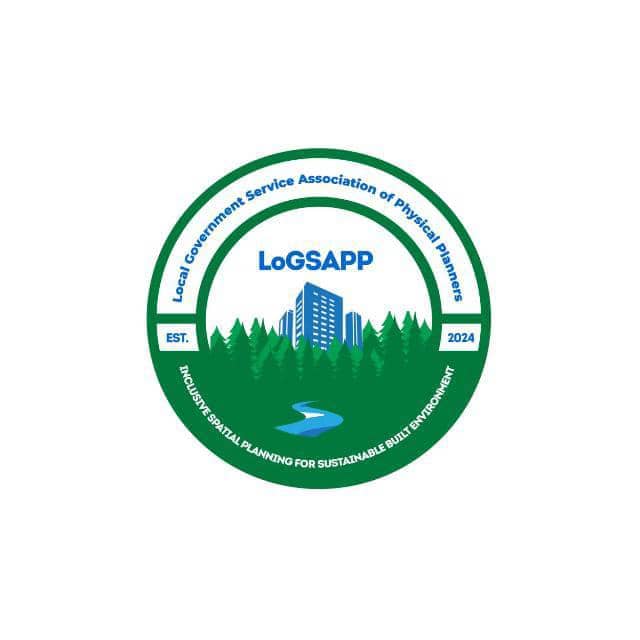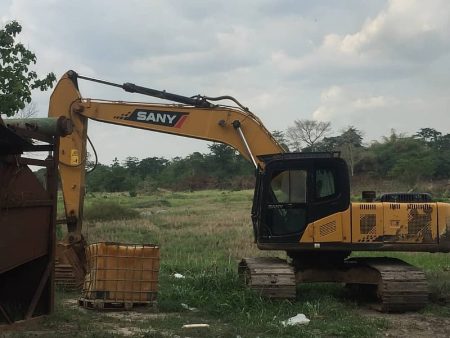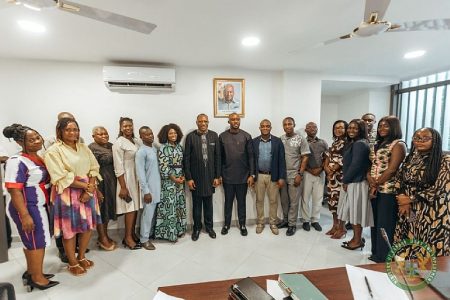The Imperative of Enforcing Planning Regulations for Sustainable Development in Ghana
Ghana, like many developing nations, grapples with the complex challenge of balancing rapid urbanization with sustainable development. Unplanned urban sprawl, often characterized by illegal constructions in waterways and other environmentally sensitive areas, has resulted in devastating consequences, including frequent flooding, environmental degradation, and loss of life. President John Mahama’s recent condemnation of these practices and his commitment to enforcing planning regulations signal a crucial shift towards prioritizing sustainable urban growth and environmental protection. This decisive action has been lauded by the Local Government Service Association of Physical Planning (LOGSAPP), an organization dedicated to promoting sound land use practices and spatial planning. LOGSAPP views the President’s stance as a vital step towards achieving the United Nations Sustainable Development Goals, particularly Goal 11 (Sustainable Cities and Communities) and Goal 13 (Climate Action). The enforcement of planning regulations is not merely a matter of aesthetics or bureaucratic procedure; it is fundamental to building resilient cities capable of withstanding environmental pressures and safeguarding the well-being of present and future generations.
The legal framework for addressing unauthorized development in Ghana is established through the Land Use and Spatial Planning Act, 2016 (Act 925). This Act empowers local Assemblies to take decisive action against illegal structures that pose environmental risks, encroach upon public spaces, or violate zoning regulations. Specifically, Section 121 of Act 925 grants Assemblies the authority to remove, prohibit, or demolish unauthorized structures that create nuisances, interfere with designated areas such as riparian buffer zones, parks, and infrastructure corridors, or contravene building codes and other land-use regulations. The clear legal mandate provided by Act 925 provides a solid foundation for enforcing planning regulations and curbing haphazard development. However, the effective implementation of these regulations requires not only legal backing but also robust enforcement mechanisms, adequate resources, and a commitment to overcoming challenges such as political interference and legal loopholes exploited by violators.
While the legal framework exists, several challenges hinder the effective enforcement of planning regulations. LOGSAPP has highlighted critical issues, including legal loopholes that allow violators to circumvent the law, insufficient enforcement capacity within Assemblies due to resource constraints and lack of personnel, and the absence of advanced tools for monitoring and inspection. These challenges underscore the need for a multi-pronged approach that addresses both the legal and practical aspects of enforcement. Strengthening legal processes to prevent exploitation by violators, providing adequate resources and training to enforcement agencies, and equipping them with modern technological tools are essential steps towards achieving effective implementation of planning regulations. Furthermore, addressing the issue of political interference, which often undermines enforcement efforts, is crucial for ensuring that regulations are applied consistently and without bias.
The President’s commitment to enforcing planning regulations must be translated into concrete actions that address these challenges. LOGSAPP has proposed several key recommendations to strengthen enforcement efforts. These include bolstering legal processes, enhancing the capacity of Assemblies by providing adequate resources, personnel, and modern tools, and promoting inter-agency collaboration to ensure a coordinated approach to enforcement. Specifically, LOGSAPP has called for the recruitment of legal professionals to assist technocrats within Assemblies during law enforcement and prosecution stages, thereby strengthening the legal capacity of local authorities. The acquisition of vehicles and advanced technological tools for regular inspections is also crucial for enabling Physical Planning and Works Departments to effectively monitor and prevent illegal constructions.
Beyond enforcement, proactive measures are crucial to prevent further unauthorized development. Accurate and detailed data on land features, including topography, soil type, and water flow, are essential for understanding land behavior and assessing risks associated with flooding, erosion, and soil instability. Conducting comprehensive topographical studies can inform land-use decisions and ensure that construction activities are undertaken in safe and suitable locations. This proactive approach can significantly reduce the risk of future environmental disasters and promote sustainable land management practices. By integrating scientific data into planning processes, Ghana can move towards a more informed and proactive approach to development that prioritizes environmental sustainability.
The enforcement of planning regulations and the promotion of sustainable urban development are not solely the responsibility of government agencies. It requires a collective effort involving all stakeholders, including citizens, civil society organizations, and the private sector. Raising public awareness about the importance of planning regulations and the consequences of unauthorized development can foster a culture of compliance and encourage responsible land use practices. Empowering communities to participate in planning processes and providing them with the necessary information and tools can further strengthen local ownership and promote sustainable development initiatives. Ultimately, creating resilient and sustainable cities requires a shared commitment to responsible land use and a collective effort to enforce regulations effectively. The President’s commitment and LOGSAPP’s advocacy mark a critical step towards achieving this goal.














